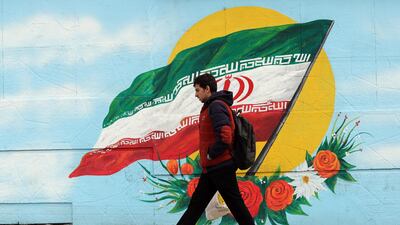The US is working with the UAE and its Gulf allies towards de-escalation, a State Department official has said.
New sanctions against Iran were announced on Friday following an Iranian missile attack on military bases in Iraq in retaliation for the killing of Qassem Suleimani, a senior Iranian Commander in a US drone strike.
“Both the United States and the Emirates, as well as many of our partners in the Gulf, are seeking a de-escalation,” David Schenker, assistant secretary for the State Department’s Bureau of Near Eastern Affairs, told a news briefing in Dubai.
“You heard the president’s speech the other day which I think was de-escalatory, conciliatory. The ball was in Iran’s court,” he said.
“The president has said that we are done for the time being with kinetic action and we will wait to see how Iran and its proxies respond.”
Mr Schenker was in the UAE on Friday to meet Minister of State for Foreign Affairs Anwar Gargash, and Iraqi parliamentarians, following a visit to Erbil, Iraq to meet Kurdish officials of the regional government.
The State Department official issued a warning on Iran’s military capabilities.
“It’s no secret Iran has capabilities of targeting a broad range of states throughout the region,” he said, adding that Tehran has “no compunction” about violating state sovereignty after launching ballistic missile attacks on Iraqi bases.
“If it’s willing to fire into Iraqi military bases there are apparently very few constraints on what Iran might be willing to do.”
The primary deterrent to Iranian aggression is the US presence in the region, Mr Schenker said.
Turning his attention to the fight against ISIS in Iraq, Mr Schenker said the US is “the tip of the spear” and the coalition may not be able to operate without it.
"In 2019, the coalition conducted 4,000 operations against ISIS in Iraq. It’s enormous.
“We provide assets that no other coalition ally can provide," he said.
“If the United States wasn’t in Iraq, it’s hard to imagine the coalition being in Iraq. We are the critical partner.”
Mr Schenker added that there was a concern the extremist group would return if US troops were not present.
The US and Iraq are engaged in a discussion in “all aspects” of their relationship, he said.
The US, he said, wants Iraq “to be a stable, secure, prosperous and, most of all, sovereign state”.
Earlier this week, Iran rejected a US offer of talks “without preconditions” to de-escalate tensions between Tehran and Washington.
“The President has indicated, as you know, he’s willing to speak with anybody. He’s spoken with the North Koreans, he would certainly be willing to speak with the Iranians,” said Mr Schenker.

